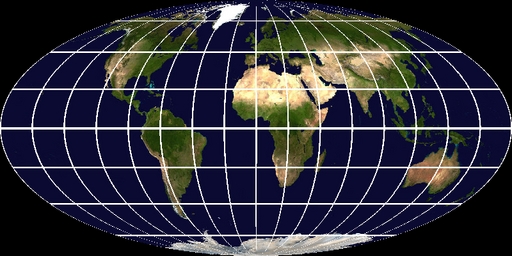
This image was downloaded from the Space Science and Engineering Center from the University of Wisconson-Madison website.
I have read Selden's "Creating Textures for Celestia" where it describes how to obtain software that can convert images to the Simple Cylidrical or "Plate Carre" Projection. My first attempt, using the Spherical Mapping Corrector from Richard Rosenman, yielded the following image:

As you can see South America and Australia are distorted.
Before I spend too much time on the trial-and-error process, could someone please tell me how I may acheive a successful conversion?
Thanks-

